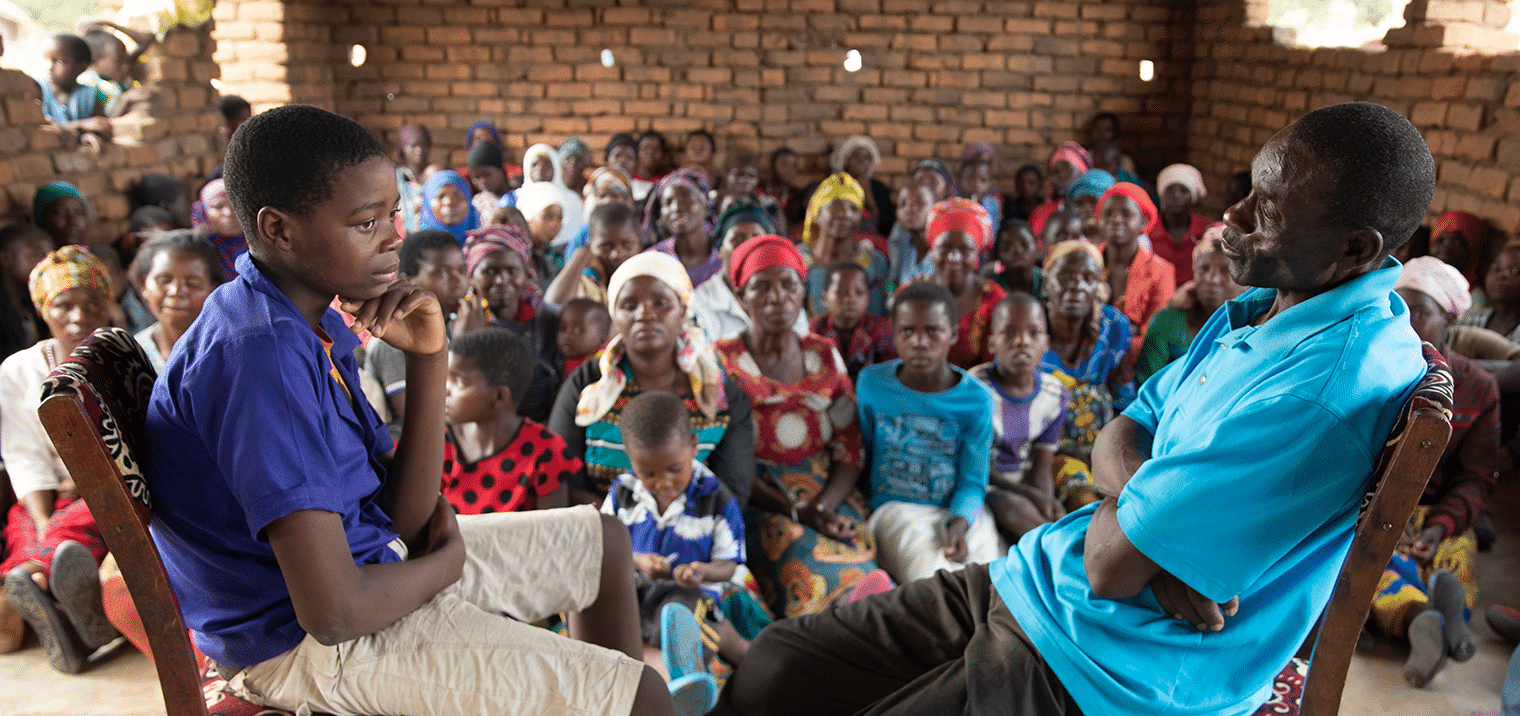
On the Ground: In Malawi, Transformation Doesn’t Happen Alone
Project HOPE’s work in Malawi is helping people with HIV access the care and support they need — but it’s also transforming entire communities, from the ground up.
Alyshia Linares, Project HOPE’s senior director of brand marketing, shares her observations from a recent visit to Project HOPE in Malawi.
Not long after my plane touched down in Malawi, I was reminded of why I joined Project HOPE. After nearly 20 years in the private sector, I wanted to feel inspired by my work. But more than that, I wanted to inspire others — to give people a window into the world and show them the beauty of a place they’ve never been and the strength of the people who live there. Malawi is awash with this beauty, and its people are filled with this strength. It’s also a young country — more than half the population is under 18. Young people in Malawi are particularly passionate, and their parents want the same things we want for our kids: education, a good job, the chance to make their own future.
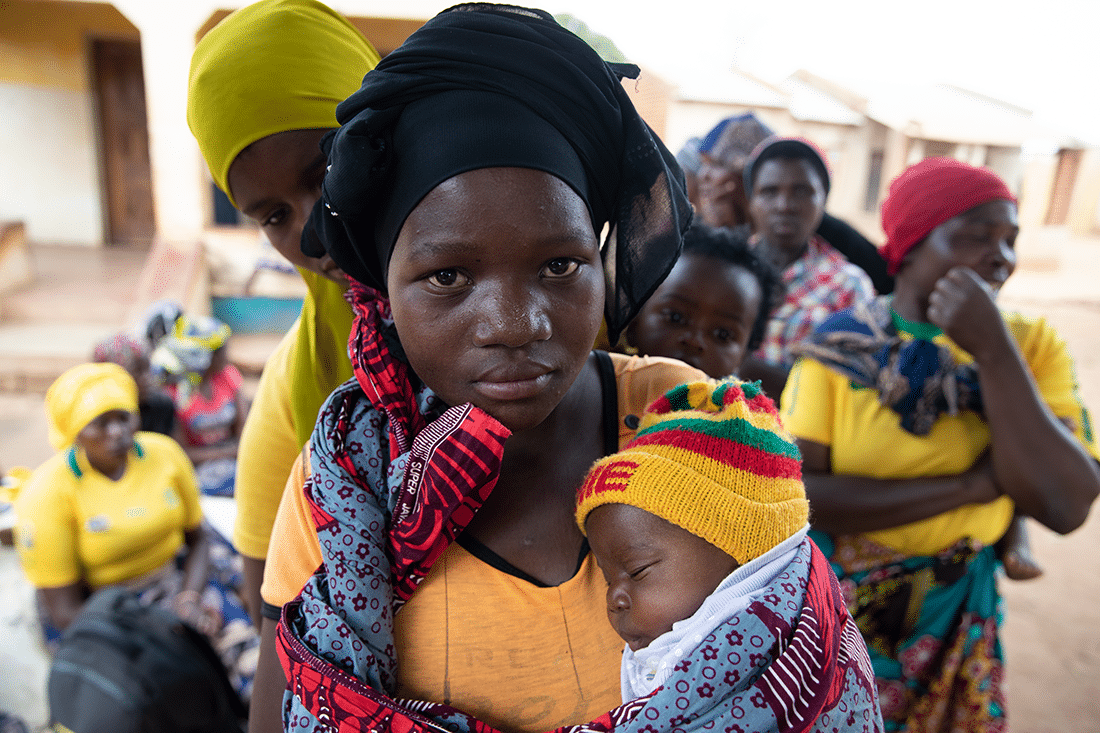
Despite incredible gains, however, Malawi is still a country of challenges. It has one of the lowest development rankings in the world: nearly 3 out of 4 people live on less than $2 a day, and more than a third of children under 5 are stunted by malnutrition. Even as AIDS-related deaths have been cut in half since 2010, 1 million people in Malawi still live with HIV, an illness that, like so many challenges in the country, disproportionately affects women.
Some of the most urgent needs in Malawi center around water. As the climate has changed, the rainy seasons have become more irregular, meaning the harvests that farmers have depended on for generations are no longer guaranteed. The last harvest before I arrived fell short, and as I met with families across the country, they told me how they struggled to find enough to eat — how they were surviving on cassava, a potato-like starch, as evaporating lakes had taken the fish with them.
When the rains do return, they will spike diseases to almost uncontrollable levels. Malaria, which is already rampant, will get worse, while health clinics will be overrun with people suffering from basic water-borne illnesses.
Yet, what I learned from meeting people across Malawi is that in the face of these challenges, they are filled with unending optimism. Everyone smiles as they work, because they carry so much pride in what they do. Our staff and partners appreciate how important their work is to these communities, because, in many cases, these communities are where they come from.
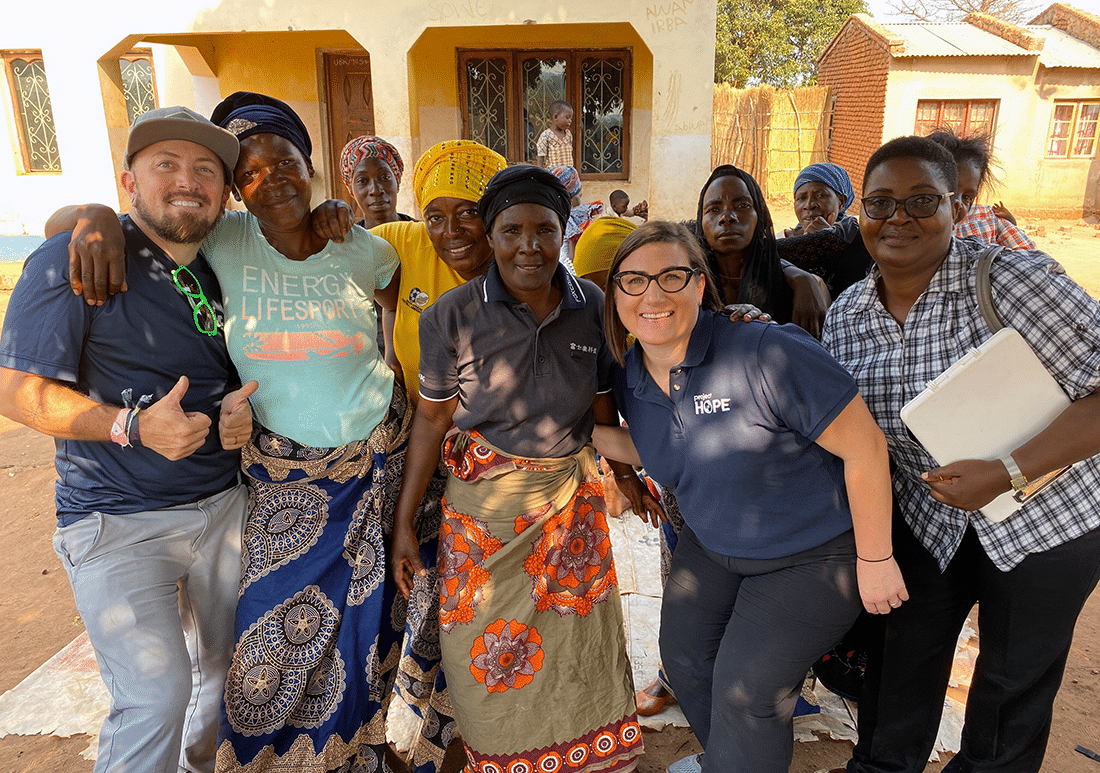
I came primarily to see a program called One Community, which Project HOPE runs in partnership with Johns Hopkins University and Plan International. One Community is about reaching people who are affected by HIV, but as HIV is not a problem owing to just one cause, One Community is not a program with one solution. In addition to providing HIV testing and other health support, One Community offers mother care groups, village savings groups, business training, parenting skills and safe spaces for young people. Importantly, it brings together people with and without HIV to break down stigmas about the illness.
The belief is that if you offer 360-degree care, you can strengthen not only a family, but an entire community. “The biggest problem is that people are failing to access health services because of their economic status,” a Project HOPE team member named Sam told me. “This is why we need economic strengthening.”
It’s not a connection we’re used to making — that to help people with HIV, you have to help them earn a living. But on a hot October day, a woman named Emelita makes that connection clear to me.
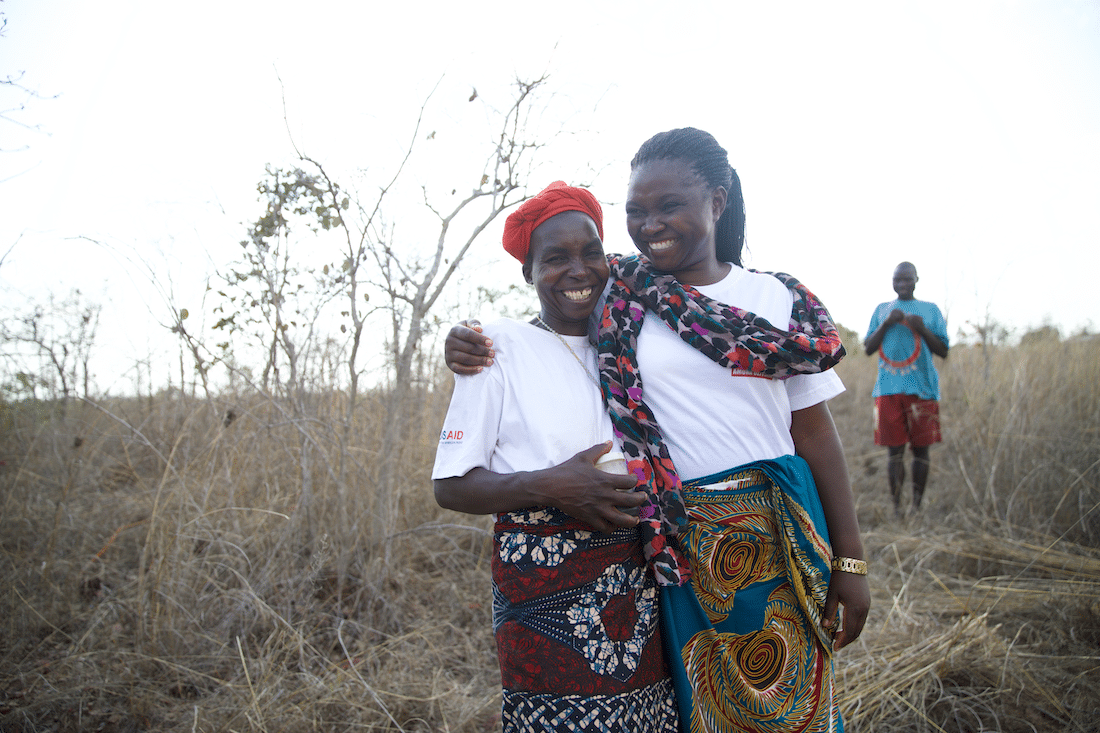
Emelita leads a savings group that helps women in her village save money and start their own businesses. She’s a beekeeper herself and is driven to improve her community. She’s also HIV-positive and is passionate about preventing the spread of HIV.
“One Community has brought services closer to the community. We can get to the people who are hiding, find them, and give them the services they need.”
After Emelita’s first husband died, she discovered his hidden bottles of medicine and realized he had HIV and had never told her. After speaking with a friend at church who is also HIV-positive, Emelita became motivated to share her story. So she became an activist: she told her parents and her husband about her status, and in 2016 she took a Project HOPE training to become a Community Resource Person in her village.
Today, she makes home visits to educate people in her community about safe practices, including how to prevent mother-child transmission. Emelita’s second husband and three children are all HIV-negative, and she says her experience drives her to make a better life for her family and her village.
“One Community has brought services closer to the community,” she says. “We can get to the people who are hiding, find them, and give them the services they need.”
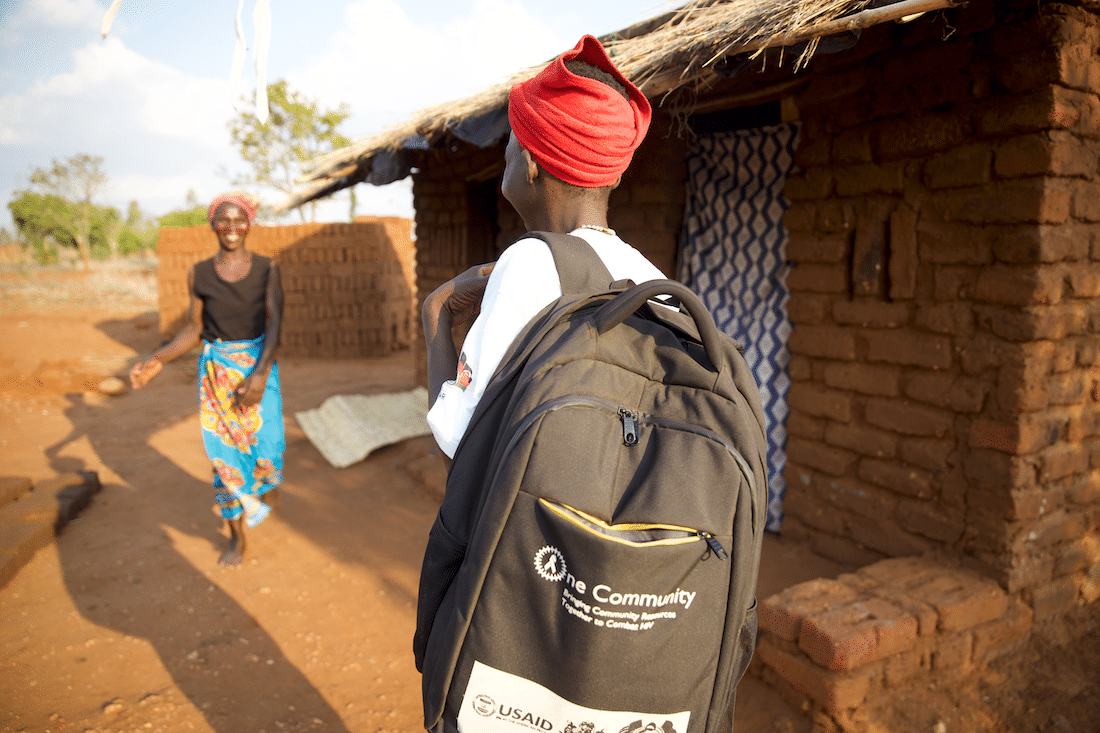
Stories like Emelita’s came to show me how One Community is a perfect name for what Project HOPE is doing in Malawi. In my short time in the country, I saw how this work reaches every aspect of people’s lives to improve their entire well-being: I met children who were able to go back to school, women who were running their own businesses, teenagers who were in social groups with their peers, and new parents who had received emotional support.
I met young girls who reminded me of my own daughter, like 9-year-old Gloria, a bright girl full of big dreams and infectious laughter. A year ago, Gloria was considered an emergency case due to high viral loads caused by HIV, which she was born with. Today, thanks to Project HOPE, her illness is under control, she’s in school, and her family gets regular home visits from community resource workers. When I asked Gloria what she wants to be when she grows up, she told me with a smile that she wants to be a nurse.
I met women who were taking control of their own future, like Linda, a 23-year-old mom of two kids who learned business skills through Project HOPE so she could earn enough money to go back to school. When I asked her why it was so important to prove she could do it on her own, she said, “I believe when someone is educated, they are empowered.”
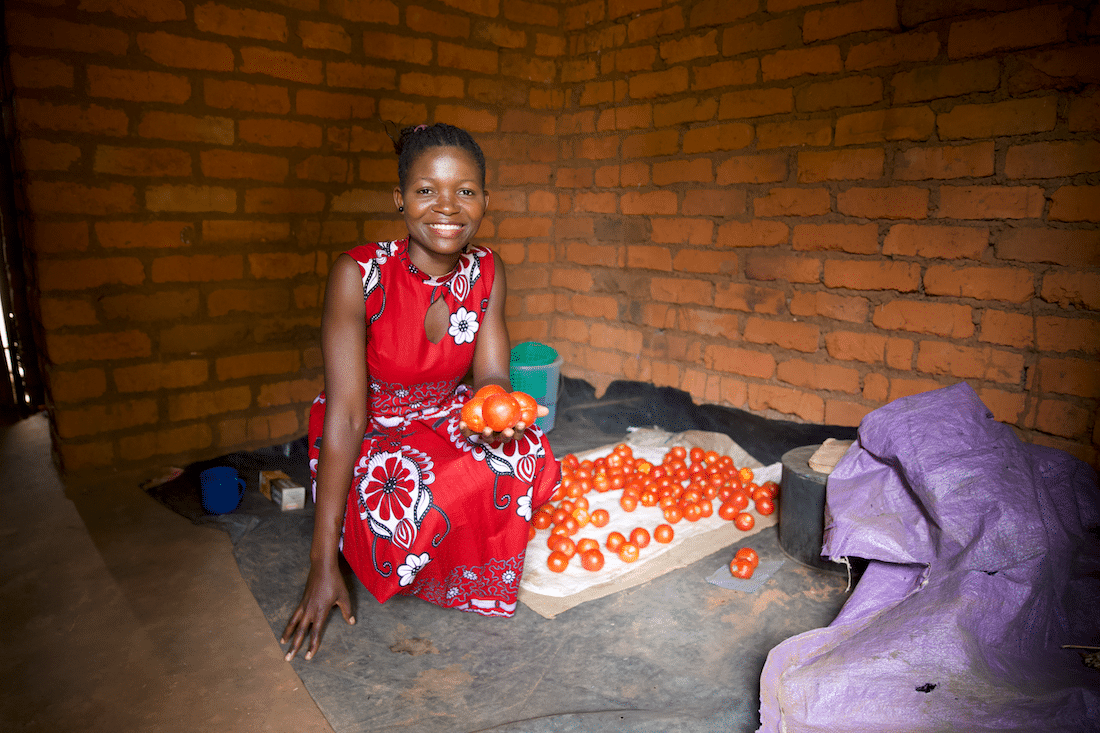
That word stuck with me, because stories like these illustrated so powerfully how empowerment is at the heart of HOPE’s work in Malawi: empowering people with HIV to access the care and support they need, and empowering communities to become a force for good. That’s where you see the power of community — when it comes together to change one person’s life. Emelita, Gloria and Linda are the future of Malawi, and their future is bright because of the network of support around them.
“I’m excited when people like you come,” Linda told me before I left. “It makes me feel like somewhere out there someone cares about us. It gives me hope.”
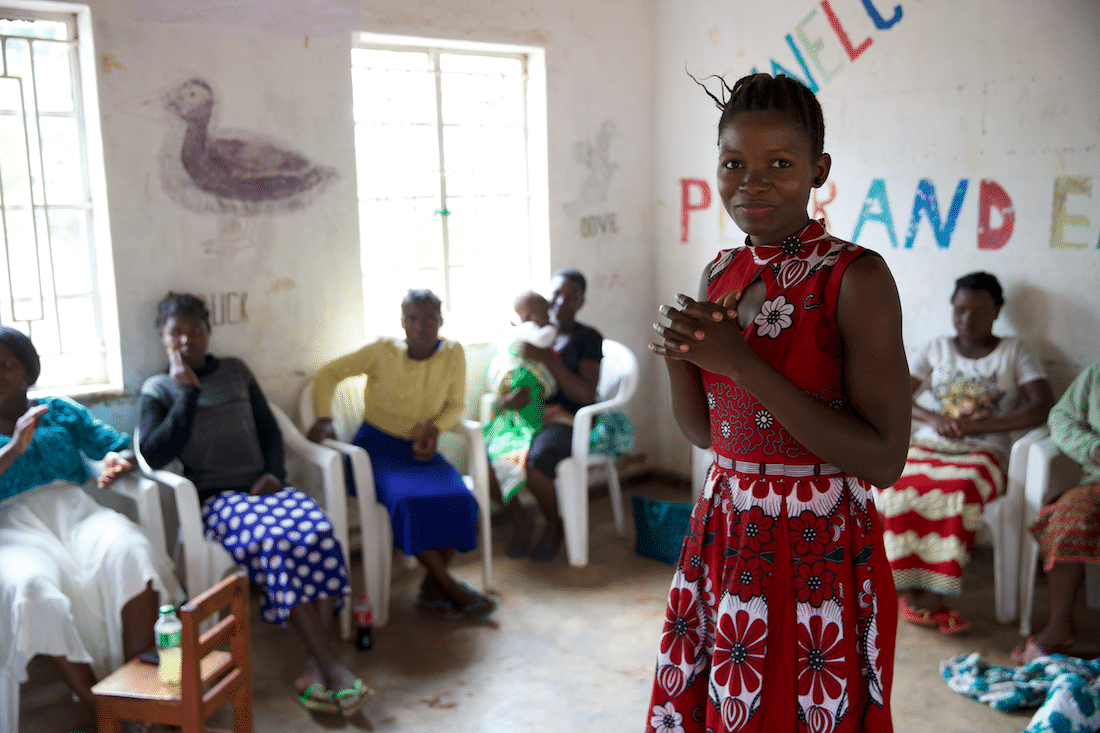
How you can help
Make a lifesaving gift to support our work now and for the future at projecthope.org/donate.
Are you a health-care or other professional who would like to learn more about volunteering abroad with Project HOPE? Learn more about our volunteer program and join our volunteer roster.
Stay up-to-date on this story and our lifesaving work around the world by following us on Facebook, Instagram, LinkedIn and Twitter, and help spread the word by sharing stories that move and inspire you.